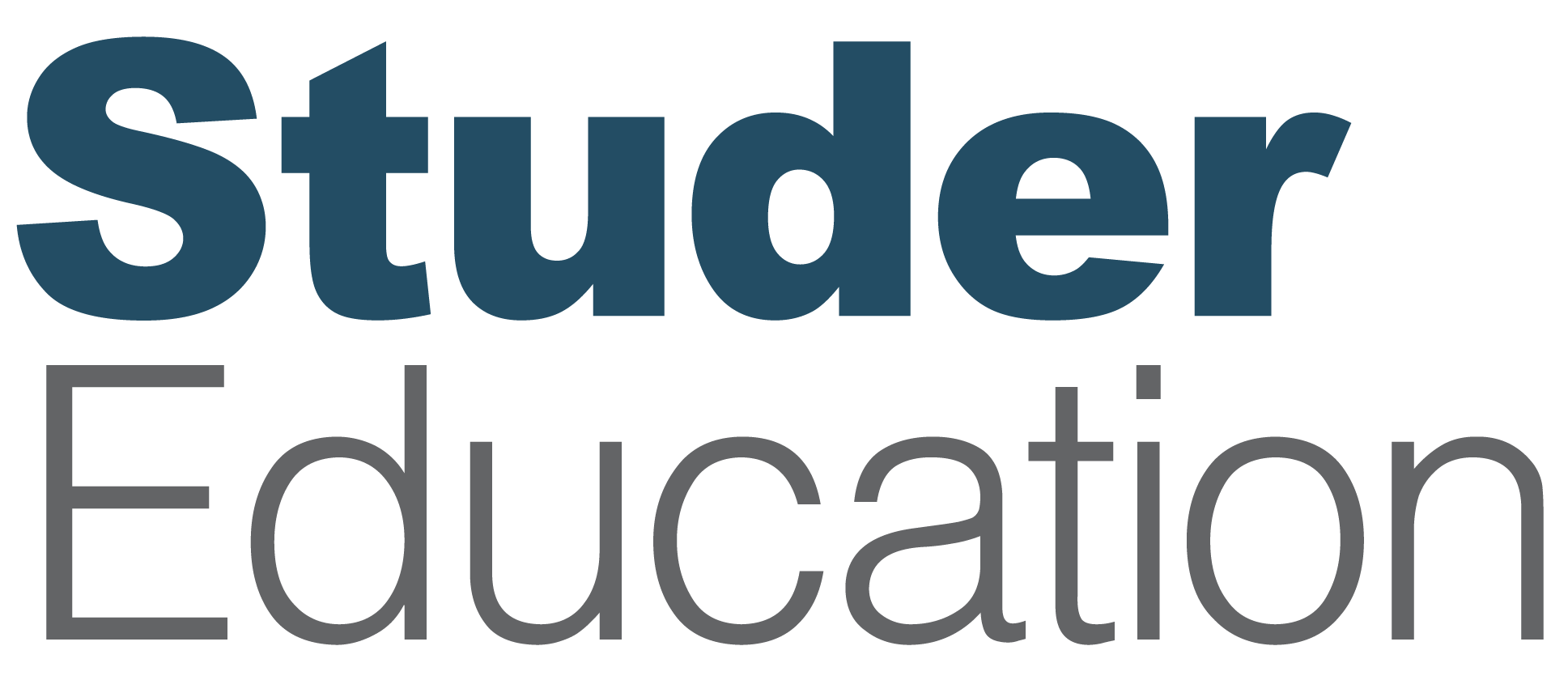
In this final live episode from the Destination High Performance K-12 Leadership Conference, Dr. Janet Pilcher welcomes Dr. Heidi Eliopoulos, Superintendent of the School District of Altoona. With over two decades in education, Heidi shares her leadership journey—from an “accidental superintendent” to a high-performing leader.
Tune in as Dr. Eliopoulos highlights the essential role of leadership coaching. She also discusses how she has successfully hardwired personal connections through practices like rounding and recognition, and why a relentless pursuit of improvement has been central to her district’s success.
This episode addresses questions such as:
- How does leadership coaching provide personalized support and drive continuous improvement?
- Why is it crucial for leaders to actively seek out mentors?
- How can you effectively hardwire practices like rounding and recognition for genuine, lasting connections?
Latest Episodes
Heidi Eliopoulos: The greatest gift we can give ourselves as leaders is to decide what kind of a leader we want to be and go after it.
[Intro music plays in the background.]
Introduction
Janet Pilcher: Hello everyone, welcome to the Accelerate Your Performance podcast. I’m your host, Dr. Janet Pilcher, founder and president of Studer Education.
I’m so glad you joined me today as we air our final live recording from the Destination High Performance K-12 Leadership Conference. I hope this series has been as meaningful to you as it has to me. We’ve taken a meaningful way to experience the small part of those valuable takeaways from our conference that you might have missed if you weren’t there. I sure hope you’ve enjoyed it.
And speaking of conferences, don’t miss our next one coming up in October. Visit Studereducation.com/events or click the link in the show notes for more information. Space is limited, so get registered today. I hope to see you at Hemet.
Last week you heard from Dr. Casey Nye, who dove into the importance of service excellence. And here with us today to talk about the importance of coaching and why improvement work never ends, we have a returning guest and a true leader in our field, Dr. Heidi Eliopoulos, Superintendent of Schools in Altoona, Wisconsin.
With over two decades in education, Heidi is incredibly passionate about leader development and continuous improvement. My conversation with her today is a journey of leadership lessons, exploring her evolution from a new superintendent to the strong leader she is today. We’ll dive into the role of leadership coaching, discuss how she successfully hardwired personal connections in her district, and hear why as one of our Studer Education’s longest standing partners, a relentless pursuit of improvement has been her central focus of success.
I’ve known Heidi all these years, and I can tell you, she is a phenomenal leader. It’s such a pleasure doing this interview with her. Let’s dive into it.
Interview
Janet Pilcher: Our conversation today will be a journey of leadership lessons, Heidi. We’ll start by looking at the beginnings of your superintendent and where you are today. So Heidi, welcome to our show.
Heidi Eliopoulos: Thank you. It’s such a pleasure to be here.
Janet Pilcher: So let’s start. Think back, Heidi. Think back when you first became superintendent and then think about where you are today.
Heidi Eliopoulos: So I’m not sure if we’ve ever talked about this before, but I became a superintendent by accident. It wasn’t my plan to next step, minimally the timeline wasn’t. I went from being a middle school principal to a superintendent, so I had not worked at the central office level. So to be 100% honest, I didn’t know what a superintendent did.
I was keenly aware of how much I didn’t know, so on top of lacking knowledge and experience, I lacked confidence. But people were depending on me, so I had to figure it out. So now 10 years later, here we are sitting having a conversation about leadership. So clearly a few things happened between then and now, and I appreciate the opportunity to talk about what those were.
In those earliest years, and even up through today, one of the things I did is I went to events like this or gatherings of superintendents from across the state of Wisconsin, and I looked around, and I wanted to know who was doing it awesome. What school districts were getting great results, what leaders were leading and getting those results. And I wanted to learn everything I could about what they did.
Two leaders still today are my most influential superintendent role models, Pat Greco, who is in Menomonee Falls, that we’ve all had the opportunity to hear from and Joanne Sternke, who is in Pewaukee at the time.
I looked at them, I looked at their districts, what they were measuring, what they were focusing on. And I asked myself and tried to learn: what are they doing, why are they doing it, how are they doing it? And while I learned so many leadership strategies that during that time, possibly the most important leadership lesson I learned is that our skills, our abilities in leadership, they’re not finite. I could grow, and I did grow, and I think the greatest gift we can give ourselves as leaders is to decide what kind of a leader we want to be and go after it. Make it happen. Don’t sit back and wait to be invited. Notice the leaders around you. There are incredibly talented leaders in education. Notice them, ask them questions. Everybody is willing to help each other and talk about what they do and why.
Janet Pilcher: Yeah, and you’re a learner, Heidi. I mean, you love, you know, I can, I always know, I love for Heidi to be in the audience because she always sits close to the front. And if you ever need a friendly face while you’re up on stage, you can always look over at you because you’ve got a smile on your face and you’re always learning. Just so appreciate that about you. So that’s just part of who you are and part of why you are as good as you are today.
Heidi Eliopoulos: Thank you.
Janet Pilcher: As you think about what you’ve learned, how is leadership coaching? Melissa, I think has been connected with you all throughout the year and the two superintendents. But how has coaching helped you and your team and how has that been a significant part of your approach?
Heidi Eliopoulos: Leadership development is one of the most, maybe the most important thing that we do. And in the School district of Altoona, believe it or not, our leadership development is grounded in culture and strategy. Just like we’ve heard over and over. That’s the foundation of our monthly leadership development. We spiral evidence-based leadership concepts and we come back to them and revisit them year after year. And that’s universal learning and universal implementation and it’s causing us to work to be a high reliability organization.
Janet Pilcher: So good.
Heidi Eliopoulos: But we’re in the business of people and sometimes context matters. So our leadership team has our director of maintenance on it and it has our 4K coordinator. And the work that they’re doing, some of it is similar, some of it’s very different. And the context of how they lead and what they need to do is slightly different. And that’s where coaching allows for personalization of their own leadership, navigation, and growth. Coaching helps us meet people where they’re at and talk them through the hard work that they’re doing.
We talk a lot about our challenges in education, especially over the last five years. But we’ve always had challenges. They’ve just changed over time. I became a teacher in 2001. I taught 9th grade English and then senior English in our at-risk program. And in that first year, in 2001, 24 years ago, before COVID, before the political polarization of education, I remember going home days in my first year and what I never said to myself is “Man, this is easy. My students, they’re so easy to work with. I’m really good at this and I’m confident in doing it.” I never said that.
And now we have challenges and they’re different. And I feel confident predicting that 24 years from now, we’ll still have challenges. And the context changes and working through that and navigating and finding the answers, which are often in ourselves and in our profession, coaching helps us do that.
Janet Pilcher: Absolutely. And it gives us that opportunity to really engage in those meaningful conversations that we’ve been talking about. So when we talk about improvement, that’s kind of been our big word for today and throughout the conference. We know that we’re constantly striving to get better. It’s neverending. What does this mean to you and the way you lead your team?
Heidi Eliopoulos: So as a high school English teacher by trade, when I hear this question, what comes to mind for me is something I taught 24 years ago that Ralph Waldo Emerson said, “People long to be settled; but only insofar as they’re unsettled is there any hope for them.”
It’s our natural wish and want to get to that point of settled. “Man, once I get through this referendum, once we get through this staffing reduction process, once we get through this curriculum adoption, you know, things are going to quiet down after that.” And we long for that. But the challenge and the growth comes from persevering through the challenges. And thank goodness for that because we’ve been through it enough. We know the settled really isn’t on the other side of the referendum or the curriculum adoption process. Our true fulfillment is going to come from progress and working through those challenges.
As a leader, one of the takeaways for us then is finding that right level of intensity. That’s where the magic happens. Not a tense work environment where people are afraid or intimidated or feel too high stakes of accountability that they can’t take risks. But that sense of urgency and that constant manageable pressure. If we can create that environment, we can really accomplish a lot.
Janet Pilcher: It is. I keep going back to it, but it’s Peter Senge’s creative tension. Just that ability to really manage that. How do we put enough tension in but not too much? But put enough tension in where we build that urgency for change and action.
And thinking about that, you’re really good at building personal connections. You’ve used the tactics that we’ve talked about with rounding as well as recognition and appreciation. You know, talk about how you’ve relied on these practices for the decade, right?
Heidi Eliopoulos: Yes.
Janet Pilcher: More than a decade, Heidi, to really build those personal connections with people you work with.
Heidi Eliopoulos: Absolutely. Those are two areas that we’ve committed to hardwiring. And with hardwiring, you don’t hardwire everything you do in the organization. You pick your most important tactics that are so valuable, they need to be guaranteed across the organization.
But hardwiring isn’t about compliance. If we commit to rounding with every employee twice, it’s not check, check. We did it. It’s really important to understand why rounding. What do we really want to know from our staff? What are we going to do with that information? Why is it important to us? How are we going to take action? How are we going to tell people about the action?
And to get us to hardwiring, at one point we did have it as a strategy on our scorecard. Now that it is hardwired, and not just 100% of our leaders are doing it, 90 or 95% of the time, 100% are doing it 100% of the time. It doesn’t really need to be anymore. It’s just something we do. It’s the way we do business.
Reward and recognition is an area we wanted to get better at. So we took just a slightly different approach with that. And we actually, as a leadership team, created a short cycle for ourselves, where our metric was average counts of individual recognition per day. We tracked it every month as a team, our aggregate count as a team. And that not only gave us that drive and motivation. It helped us understand what was a realistic aim. And it gave us the opportunity to talk about strategies with each other and learn ways that we could be efficient but still be effective.
Janet Pilcher: Yeah, yeah, I love that. I mean, just, you know, when we were talking about short cycles throughout the day, I mean, you can put short cycles in anything that you do, and really paying attention and being intentional about that.
Well, as we close today, you know, we just can’t imagine being here in this work without you, without you as one of our high-performing superintendents of our network. You’re one of our longest standing partners, Heidi. You’ve led, you know, two districts and your work is courageous. You have been a courageous leader. You have been a great learner and you continue to want to learn and to continue to be coached and to work in partnership with us, being coaches to each other. What’s been important to you?
Heidi Eliopoulos: Absolutely. So I echo all those same things. I couldn’t imagine doing this work without partnering with Studer or having a coach. I feel so fortunate. I’ve had the same coach for the last 10 years. And over that amount of time, you develop a relationship.
So this past year, I worked with my coach because I was experiencing some of the greatest personal struggle and challenge leading that I had for years. And I couldn’t quite figure it out because it was ironic. We had the least amount of crises that we have had, but yet I was struggling through it. And through conversation with her, we were able to figure out why that was. And she helped me relate to other leaders who had been through something similar. And that was invaluable.
And the difference between lamenting to a personal friend or a coach is, your coach expects you to do something about it when you have a challenge. So that right level of intensity, we all need that as leaders, myself included. And again, solidified that, that relentless pursuit of improvement. My coach helps me have that. It could be easy to get comfortable after 10 years because I’ve figured out the technical things, but she helps me keep that level of intensity for myself and to continue to learn and grow.
And I’m so fortunate. I have the most incredible leadership team, but they need me to continue to learn and grow because if I’m going to draw out the best in them, I have to be drawing out the best in myself because so many of them are far more brilliant and talented than I will ever be. So I need to grow so I can continue to serve them. And coaching helps me do that.
Janet Pilcher: Yeah. And again, you’re such a learner. You know, as I think about coaching and sitting from that other side, I’ve said throughout the conference I coach mainly in the higher ed space, but just like you and Melissa are probably personal friends, I mean, they’re my personal friends now. They’re my friends.
And so when, you know, just like with Melissa moving with you, when I’ve coached a president and the president is left to take another presidency, I’ve gone with that person. And that has been that connector of a relationship. So part of that, I mean, part of what that coaching is, is the same thing we’ve been talking about, Heidi, which is what you’re talking about is how do you establish those productive and professional relationships that really help us work with each other in ways that can be beneficial to you or to the person we’re coaching, you know, to for us to listen very carefully and provide that guidance so that you can help your team in the best way? And that’s what you’re, you’re sharing with us. And that’s the value.
All of the stuff that we’ve talked about and all the tools and tactics and all the things are in the book. What I wanted to do today with you is just share a little bit of time with our audience. Is there’s the coaching and interpersonal aspect that you just can’t explain very well, but it’s so meaningful in terms of how we build that partnership.
Heidi Eliopoulos: Absolutely without a doubt.
Janet Pilcher: I thank you so much. I thank you for what you do. Thank you for what you do to our, for our profession. You are a true leader, true outstanding leader in our profession. Thank you, Heidi.
Heidi Eliopoulos: Thank you so much.
[Applause]
Conclusion
[Outro music plays in the background.]
Janet Pilcher: Thank you, Heidi, for sharing your leadership journey with us. Your dedication to both continuous learning and your team illustrates what’s possible when a leader decides what they want to be and goes after it. I’m inspired by your willingness to be vulnerable and to show us that leadership skills aren’t finite. They can be grown and developed.
You’ve also highlighted a key advantage of coaching. It gives us guidance and an expectation that we’lll take action.
And finally, your insights on hardwiring practices like grounding and recognition for genuine connection are a powerful call to action for every leader.
And like Heidi, may we all continue to grow and show up for our teams so we can better serve them.
That’s all the time we have today for this episode of the Accelerate Your Performance podcast. I look forward to seeing you next time as we hear from an operational leader who shows us what it means to get 1% better every single day. Have a great week, everyone.
Featured Guest

Dr. Heidi Eliopoulos
Superintendent • School District of Altoona, WI
-
Janet Pilcher President








